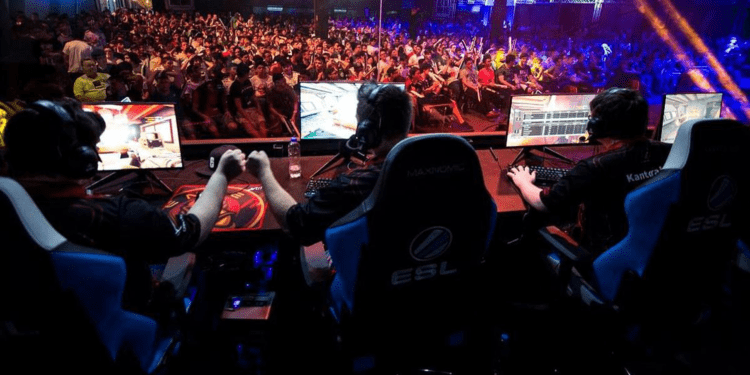Esports has transformed from niche gaming competitions into a global entertainment phenomenon, rivaling traditional sports in viewership and revenue. What started as casual tournaments for gaming enthusiasts has now evolved into sold-out stadium events and millions of online viewers, creating an ecosystem where players become celebrities and fans form dedicated communities.
Titles like “League of Legends,” “Valorant,” and “Dota 2” have emerged as the cornerstones of esports, drawing in massive audiences with their intense gameplay and strategic depth. The League of Legends World Championship alone attracts tens of millions of viewers annually, with its 2023 finals setting records for peak concurrent viewership. These events aren’t just about the games; they are full-fledged spectacles, complete with elaborate stage designs, live performances, and commentary teams that rival the enthusiasm and expertise of traditional sports broadcasters.
The rapid growth of esports is fueled by several key factors:
- Sponsorships: Major brands, including Intel, Red Bull, and BMW, have recognized the value of investing in esports, sponsoring teams, tournaments, and even individual players.
- Streaming Platforms: Services like Twitch, YouTube Gaming, and Facebook Gaming have made esports accessible to a global audience. These platforms allow fans to watch their favorite teams and players in real-time, with interactive chat features enhancing the viewing experience.
- A Passionate Fanbase: Esports fans are deeply engaged, often following players and teams across social media, attending live events, and participating in discussions on forums and platforms like Reddit.
What sets esports apart from traditional sports is its digital-first nature, which allows for innovation in how games are played and consumed. For instance, broadcasters can integrate real-time stats, replays, and player cams into streams, offering a viewing experience tailored to the tech-savvy audience. Additionally, esports tournaments are truly global, with players and teams from diverse backgrounds competing on equal footing, fostering inclusivity and representation.

One of the most intriguing aspects of esports is the rise of player-driven celebrity culture. Top players like Faker (League of Legends), s1mple (CS:GO), and TenZ (Valorant) have amassed millions of followers, with their earnings rivaling those of professional athletes. Esports stars often stream their practice sessions, offering fans a behind-the-scenes look at their lives and building a level of accessibility uncommon in traditional sports.
The infrastructure supporting esports is also expanding rapidly. Purpose-built esports arenas are popping up worldwide, from the Esports Stadium Arlington in Texas to the HyperX Esports Arena in Las Vegas. These venues cater to both live audiences and online viewers, blending the excitement of in-person events with the reach of digital platforms. Universities are even joining the trend, offering esports scholarships and building competitive teams, further legitimizing gaming as a career path.
Despite its meteoric rise, esports faces challenges. Player burnout is a growing concern, as the pressure to perform in high-stakes tournaments and maintain a streaming presence can be overwhelming. Additionally, monetization models are still evolving, with a significant portion of revenue coming from sponsorships and advertising, leaving room for exploration in ticket sales, merchandise, and subscription models.
Looking ahead, esports is poised to continue its ascent as a mainstream entertainment medium. The integration of emerging technologies like virtual reality (VR) and augmented reality (AR) could redefine the esports experience, making it even more immersive for players and spectators alike. Furthermore, collaborations with traditional sports organizations—like the NBA’s investment in the NBA 2K League—highlight the growing synergy between the two worlds.
In conclusion, esports has become more than just competitive gaming; it’s a cultural movement redefining entertainment for the digital age. As it continues to break barriers and captivate audiences, esports is proving that the future of sports isn’t just on the field—it’s also on the screen.









